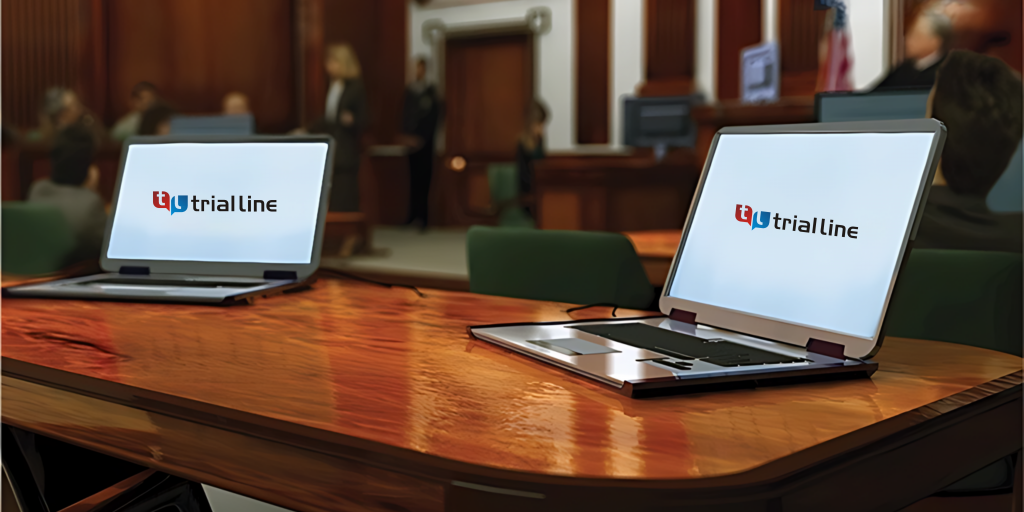The Impact of Well-Organized Trial Presentations on Jury Decisions
The Power of Visuals in Trial Presentations for a Winning Argument
The integration of visuals in trial discussions has actually arised as a crucial aspect in successfully connecting complex arguments to jurors. By using numerous forms of visual aids-- be it diagrams, photographs, or animations-- attorneys can enhance understanding and retention, eventually shaping the jury's understanding of the situation.
Significance of Visuals in Trials
In numerous legal setups, visuals play a crucial role in enhancing the effectiveness of trial presentations. The combination of aesthetic aspects can substantially affect jurors' understanding and retention of complicated info, thus shaping their understandings and decisions. Visuals, such as charts, diagrams, and photographs, can streamline detailed stories, making them extra accessible and compelling.
Moreover, the human mind procedures aesthetic details more efficiently than message, which emphasizes the importance of incorporating visuals right into lawful arguments. By converting dense lawful principles into visual layouts, attorneys can promote more clear communication, making certain that vital points are not overlooked throughout trials.
Additionally, visuals offer to engage jurors on an emotional level, cultivating a connection to the instance that words alone may fall short to accomplish. The critical usage of visuals can evoke compassion, prompting jurors to take into consideration the human elements of the instance.
Eventually, the importance of visuals in trials hinges on their capacity to enhance quality, improve juror involvement, and reinforce the story being provided. This powerful combination is important for crafting influential arguments that reverberate with jurors and affect the result of lawful proceedings.
Kinds of Visuals to Use
Reliable trial discussions can greatly benefit from a range of aesthetic tools that accommodate different aspects of the case. trial presentations. Using layouts and graphes can efficiently damage down complex info, making it extra digestible for jurors. For instance, flowcharts can show the series of occasions, while bar graphs might succinctly compare relevant data points.

Animations and simulations can additionally play an important duty, particularly in instances involving technological data or complex circumstances. These visuals can dynamically represent processes or activities, giving clarity and interaction that fixed photos may not achieve.
Additionally, infographics integrate message and visuals to sum up essential information effectively. They can offer timelines, stats, and significant situation factors in a visually appealing manner, making it much easier for jurors to comply with the argument.
Enhancing Understanding and Retention

Enhancing comprehension and retention during test presentations is important for ensuring that jurors comprehend the vital elements of a situation. Visual help work as powerful tools hereof, equating complex details into conveniently digestible layouts. By making use of charts, diagrams, and infographics, lawyers can streamline detailed data and highlight bottom lines that may or else be overlooked.
Studies have actually shown that people preserve information significantly much better when it is provided aesthetically. This is especially pertinent in a test setting, where jurors might be bewildered by the volume of proof and testament. By purposefully incorporating visuals, lawyers can guide jurors' attention to one of the most vital facets of the case, reinforcing their understanding and memory of the product presented.

Developing Engaging Discussions
Fascinating jurors' attention throughout trial presentations is crucial for sharing an engaging narrative. Engaging discussions leverage aesthetic elements to develop a remarkable experience that resonates with jurors. The tactical use of graphics, computer animations, useful content and videos can clarify complicated info, making it more obtainable and relatable.

In addition, integrating narration methods can enhance engagement. Presenting proof in a sensible series that builds sob story allows jurors to link with the material on an individual degree. Diverse presentation formats, such as including short video or interactive components, can also endure interest and interest throughout the test.
Ultimately, an appealing discussion fosters a much more profound understanding of the situation, enabling jurors to better value the arguments existing and resulting in a much more favorable outcome.
Instance Studies and Success Stories
Various situation studies highlight the considerable influence of visuals in test presentations, demonstrating their capacity to influence juror assumptions and ultimately the results of instances. As an example, a significant instance involving an accident claim showed just how the use of a 3D computer animation of the accident scene cleared up intricate details. Jurors reported feeling more educated and compassionate, significantly swaying their choice for the plaintiff.
In one more circumstances, a company litigation situation used infographics to existing economic data and timelines, making complex details accessible. The graph enabled jurors to understand the subtleties of the case better than spoken descriptions alone. trial presentations. Consequently, the court returned a judgment that went beyond the customer's expectations
Furthermore, a criminal defense case employed photographs and video evidence to establish an alibi. The compelling visuals not only helped in producing uncertainty however likewise reverberated mentally with jurors, bring about a pardon. These success tales emphasize the requirement of integrating visuals into test presentations, as they boost understanding, retention, and try this web-site inevitably, the persuasive power of legal arguments. The strategic use visuals is undeniably changing the landscape of test advocacy.
Final Thought
To conclude, the tactical unification of visuals in trial discussions significantly improves jurors' understanding and retention of complex info. By making use of various sorts of visuals, lawyers can effectively clear up bottom lines and foster psychological links with the audience. Engaging presentations, sustained by engaging study, show the profound impact that visuals can have on influential communication. Ultimately, the power of visuals functions as a crucial aspect in attaining favorable trial results.